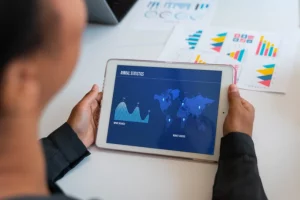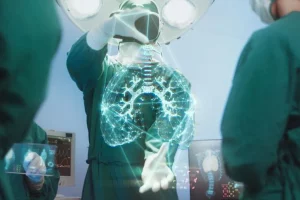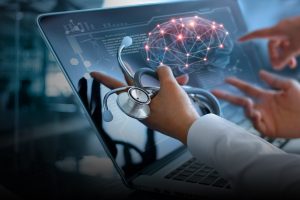Artificial intelligence (AI) is reshaping all industries across the world, and recently it has come to the healthcare. However, some healthcare professionals believe that AI might replace their jobs. Others think that their next doctor might be a robot. Nonetheless, this isn’t the case. AI technology will allow machines to learn through the analysis of patterns of large data pools. Voice assistance technologies such as Alexa and Google Home are already using AI to respond to commands and queries. In fact, artificial intelligence allows users to sync these applications with their daily routine.
More and more industries are using AI technology to improve their outcome and streamline processes. For example, Amazon used individual’s product preferences and search history to tailor their shopping experience and transform e-commerce world. Below are four ways artificial intelligence will revolutionize the healthcare industry.
Personalized Medicine
Precision medicine allows healthcare professionals to tailor treatment to meet the needs of each patient. Doctors no longer have to apply a generalized treatment approach. In fact, healthcare professionals can use AI to keep pace with subtle trends and patterns in the patient data field. Instead of relying on results from a few patients, researchers and clinicians can leverage AI to research and develop new drugs. That has improved patient outcome significantly.
Data Management
In the past few years, the electronic sharing of health records has increased exponentially. In fact, the proliferation of digital human resources in healthcare and the introduction of electronic patient data has transformed the industry significantly. That has eliminated the risk of data security breach that would often tarnish the reputation of a practice. Artificial intelligence technology allows healthcare practices to keep patient data under wraps. In fact, hospitals can use AI-enabled security systems to accelerate response time and improve security breach detection. Over time, demand for specialists who can digitize and code patient data has grown due to the proliferation of electronic health records (HER). Moreover, hospitals need more health information professionals to improve data security and accuracy.
Early Diagnosis
Artificial technology has made it easier to detect diseases such as cancer in their early stages and improved imaging technology. For example, the US performs over 12 million mammograms every year. Out of these, nearly a half of tested women receive false test results. That has increased chances of misdiagnosis.
Wearable Technology
It will be easier for individuals to make decisions and understand their health with AI-enabled fitness devices. For example, people can use wearable fitness trackers to match up their daily activities with their workouts. In fact, some wearable devices can make suggestions based on the health goals of an individual. In short, wearable health devices encourage people to take a proactive approach when it comes to maintaining their lifestyle. Subsequently, proper health management will help reduce the risk of developing diseases such as diabetes and heart disease.
Improved Patient Monitoring
Artificial intelligence plays an integral role in the development of telemedicine and preventive care. For example, researchers will be able to use gyroscope sensor data and smartphone accelerometer to treat patients with precision. Researchers will utilize patterns revealed in the sensor data to help detect differences in disease states. That will make it easier to monitor and manage diseases such as Parkinson’s proactively and with precision. In fact, patients will utilize machine intelligence to provide the necessary updates on their health.
Humans will use machine learning technology to guide, amplify, and augment their intelligence. That results in quicker and better services in the healthcare industry. Moreover, artificial intelligence tools will help deliver faster insights into equipment that is working optimally and the malfunctioned ones. With these distinctions, it will be easier for healthcare professionals to provide value-based medical care. Artificial intelligence creates an opportunity for health professionals to synthesize and unify massive pools of patient data. Researchers and doctors can use machine learning tools to examine data elements faster and comprehensively.


















